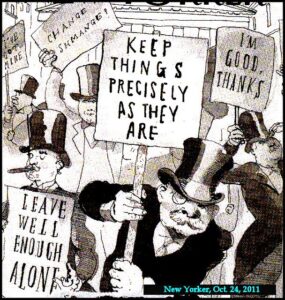
We’ve got your Republican Translator right here
We have been talking since Day One about the Republican Party’s vast messaging machine, which encompasses everything from Fox “News” to the Wall Street Journal, NewsMax, and more. Before and during the 2024 elections, we learned that this great propaganda apparatus also includes online platform Twitter (now X), popular podcasts like the Joe Rogan Experience, and sadly, once-respected newspapers like the Washington Post and the Los Angeles Times, now owned by billionaires such as Elon Musk and Jeff Bezos. When Republican politicians including Donald Trump speak, they often merely parrot what the Republican Messaging Machine wants them to say, and vice versa.
Now, however, Democrats can point to a machine of our own. Here at Messaging Matters, we have developed the Great Republican Translator Machine. Whenever a Republican talks, we run what they say through the machine, and out comes the truth of what they really mean. Let’s try some examples:
“We believe in freedom” = “We believe in the heavy hand of government”
“Egg prices are too high” = “I’m a racist”
“I’ve never heard of ___” = “I’m heavily involved with ____”
“We’re okay with the rape allegations against Pete Hegseth” = “Those allegations are a feature, not a bug”
“Those immigrants/trans people/blacks/etc. are causing all the problems in this country” = “Look at that shiny object over there while we pick your pockets and harm your health”
“We want judges who will interpret the Constitution” = “We want activist judges who will legislate from the bench”
“Government should be run like a business” = “Let’s remove important health, safety and environmental regulations on Big Business”
“We’re pro-life” = “Kids killed in school shootings and women dead from untreated miscarriages are fine with us”
“Party of smaller government” = “We want government to invade your bedrooms, your bathrooms and your wombs”
“Rule of Law” = “Republicans are above the law”
“Party of family values” = “Elect a serial liar/cheater/philanderer/felon/rapist”
Do you have any other Republican statements that need translating? Please send them in your comments, and we will add them to the list.
Photo by Jim Linwood, used under Creative Commons license. https://is.gd/CaDwHd





